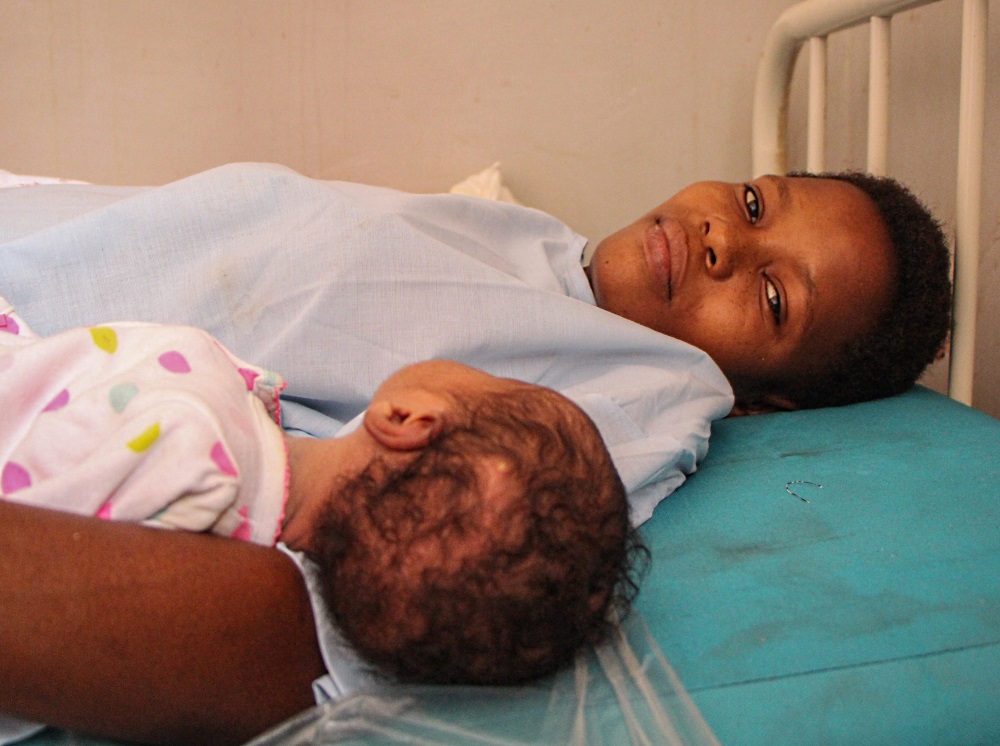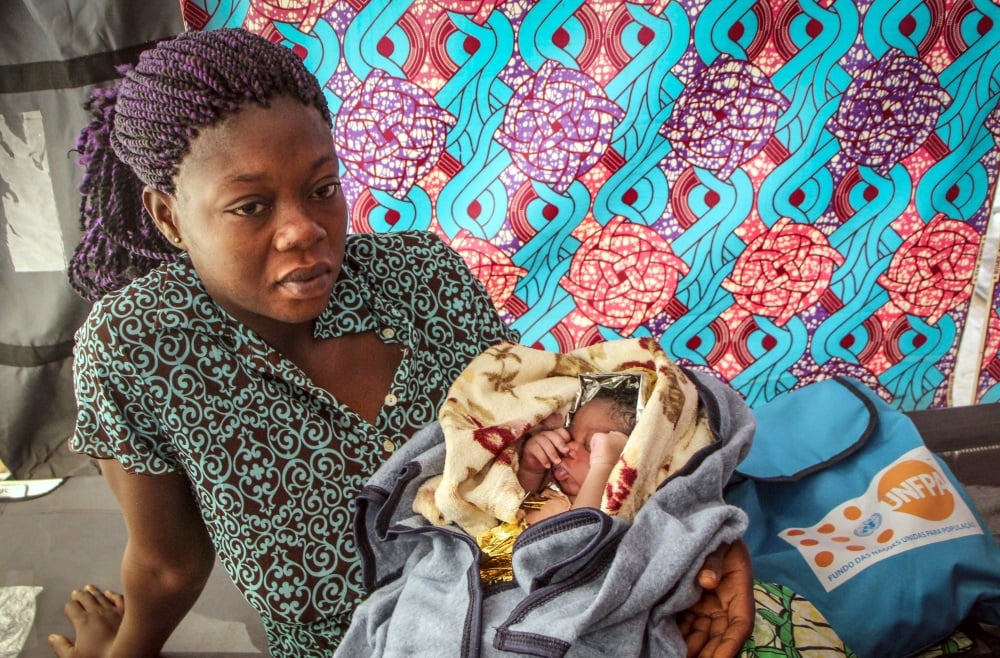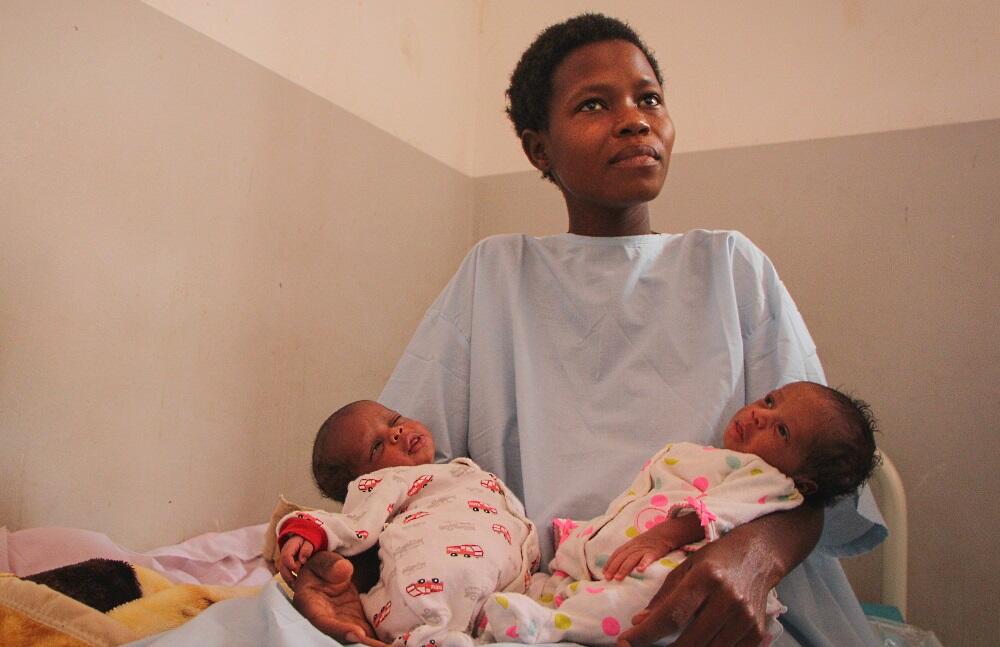LUNDA NORTE, Angola – Towards the end of her pregnancy, after escaping the conflict in the Democratic Republic of the Congo and taking refuge in Angola, Yvonne Mboi began to fear for her health. “I realized I was too big,” she said, recalling her belly size.
She had left behind her home in the country’s conflict-ridden Kasai region and made the harrowing journey while in the early stages of pregnancy.
Together with her husband and young daughter, she was one of more than 35,000 people to flee to Angola’s Lunda Norte Province. But this rapid influx of refugees had placed increased pressure on public services – including the health system.
Luckily for Ms. Mboi, she was able to receive the medical care she needed in a hospital supported through a collaborative effort between UNFPA and the government.
In late January she was taken from the refugee settlement where she now lives to Dundo Maternal and Child Hospital. Because she was identified as needing a Caesarean section, she was referred to the hospital as it provides specialized treatment for pregnancy-related complications.
Medical staff successfully performed the procedure, using UNFPA-provided medical supplies.
And when she finally gave birth, she was surprised and relieved to discover her large belly made perfect sense – she was assisted with safe delivery of healthy twin girls.
Supporting refugees with health services
We need support and medical supplies to be able to provide the necessary assistance.

Refugees in Angola receive the same treatment and services as local patients, explains José Gimi Nhunga, Director of the Provincial Department of Health. However, “we need support and medical supplies to be able to provide the necessary assistance,” he said.
This is why UNFPA is partnering with the provincial health authorities to strengthen the health system, by training health workers and providing medical supplies to hospitals.
It was through this joint effort that the hospital at which Ms. Mboi gave birth safely received medical supplies.
I am very happy to have two healthy twins.
“I am very happy to have two healthy twins,” Ms. Mboi said, as she rested in a hospital bed, a newborn baby in each arm.
Having twins is a double blessing. But caring for twin infants in a refugee settlement brings twice as many challenges. The new mother expressed her concern about being able to feed both babies successfully and about getting the clothes, diapers and other supplies needed.

Help for new mothers
To help refugee mothers like Ms. Mboi, UNFPA has provided baby kits to clinics run by its partner, Médicos del Mundo, in the two refugee settlements in Lunda Norte. The kits are not only helpful to new mums – they also draw women to the clinics for essential maternal health care.
“The baby kits – which include some baby clothes, a blanket, cloth diapers and hygiene articles – provide women with extra incentive to attend prenatal and post-natal consultations at the clinics,” said UNFPA’s Representative in Angola, Florbela Fernandes.
The baby kits provide women with extra incentive to attend prenatal and post-natal consultations at the clinics.
The incentive works well. This was confirmed by Sango Sarivo, 21, who gave birth to her third child, a healthy daughter, at one of the clinics.
“The birth went very well. I am happy with the support,” she said, smiling at her newest family member.
Continued support needed
At the maternal and child hospital in Dundo, nurse Natalia Albano called for continued support.
“We receive many refugee women. Almost all pregnant women who have complications are sent here to Dundo, and we need the necessary medical supplies to be able to do our job,” she said.
But despite these worries, there is always joy. At the hospital, three mothers – two Angolans, one Congolese – were waiting to take their newborn babies home.
My dream is to see my children grow up and study in Angola. I want them to be safe.
‘Home’, for Ms. Mboi and her newborn daughters, is a tent in a refugee settlement – for now. She looks forward to finding something more permanent.
“My dream is to see my children grow up and study here in Angola,” she said. “I want them to be safe.”
– Tiril Skarstein


